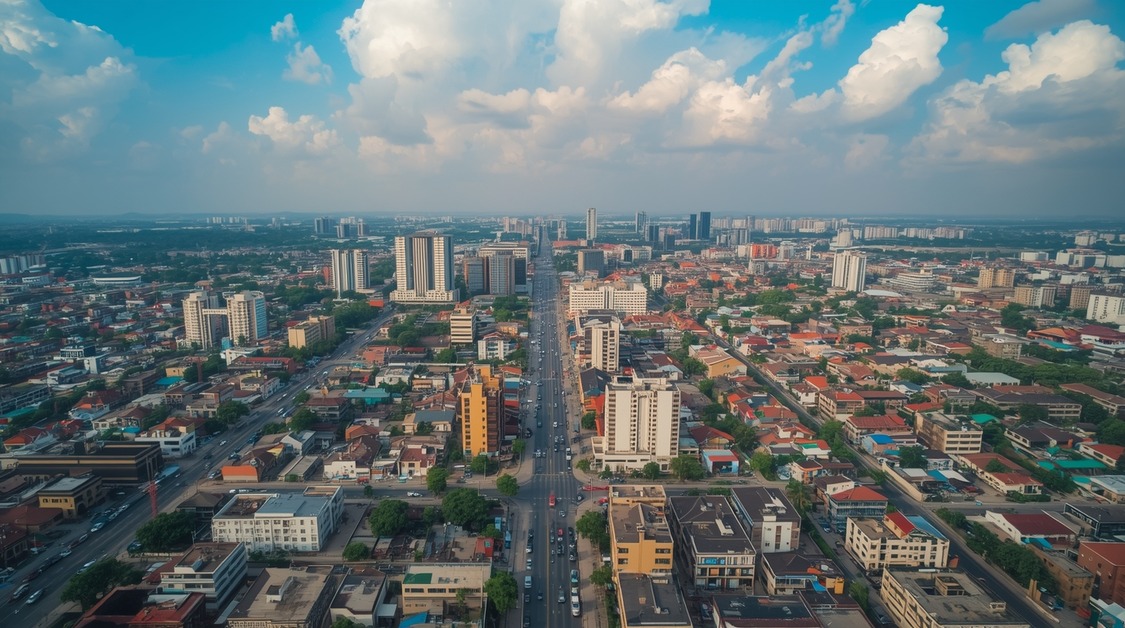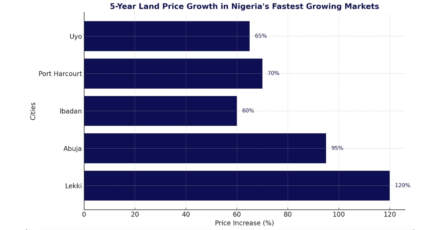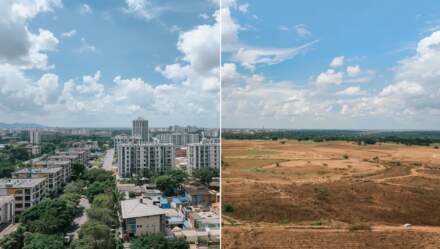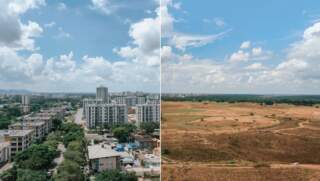When it comes to real estate, one truth has remained timeless, land doesn’t depreciate. But here is the catch, not all land grows in value at the same pace. Some locations quietly turn early buyers into overnight millionaires, while others barely move the needle for years.
If you have been wondering where in Nigeria land appreciation is happening fastest, this guide breaks it down for you. Whether you are an investor, a first-time buyer, or simply curious about the future of real estate in Nigeria, these are the locations you should have your eyes on.
1. Lekki & Ibeju-Lekki, Lagos
Years ago, Lekki Phase 1 was just bushland and sandbanks. Today, it’s one of the most expensive pieces of real estate in Lagos. That same story is unfolding in Ibeju-Lekki and Epe.
This is because of the massive infrastructure projects, like the Dangote Refinery, Lekki Free Trade Zone, Lekki Deep Sea Port, and the new international airport under construction. Early investors who bought land here at “giveaway prices” are now sitting on plots worth multiples of their initial investment.
What drives appreciation here:
- Infrastructure and industrial development
- Growing demand for housing and commercial spaces
- Government-backed mega projects
2. Epe, Lagos
Epe has become one of the hottest emerging markets in Nigeria. Just 10 years ago, you could get a plot for under ₦500k. Today, many estates in Epe sell between ₦3m – ₦10m depending on location.
Epe’s appeal is its positioning, it connects Lagos to Ogun State, has a newly upgraded road network, and is close to the Free Trade Zone. It is attracting both developers and individuals seeking affordable alternatives to Lekki.
What drives appreciation here:
- Road expansion projects
- Proximity to Free Trade Zone & refinery
- Affordable entry point with high growth potential
3. Abuja (Guzape, Jabi, Katampe, Apo)
The FCT continues to attract consistent appreciation, especially in well-planned districts like Guzape, Jabi, Katampe Extension, and Apo. Abuja’s status as Nigeria’s political and administrative hub guarantees steady growth, with infrastructure expansion and urban migration fueling demand.
Unlike Lagos, Abuja offers more structured layouts, making it attractive to both foreign investors and Nigerians seeking stable, high-value appreciation.
What drives appreciation here:
- Continuous demand from politicians, diplomats, and businesses
- Government presence and infrastructure
- Planned city structure
4. Ibadan, Oyo State
For years, Ibadan was overlooked as a sleepy, slow-paced city. But things are changing. Improved road networks, the Lagos–Ibadan Expressway, and the Lagos–Ibadan railway have transformed Ibadan into a viable alternative for people priced out of Lagos.
Developers are also moving in, creating estates and gated communities that are raising the city’s property profile. Today, land that once cost ₦500k can now go for ₦5m–₦15m depending on the area.
What drives appreciation here:
- Urban expansion and growing middle-class demand
- Proximity to Lagos with cheaper living costs
- Improved transport infrastructure
5. Port Harcourt, Rivers State
The oil-rich city of Port Harcourt has always been a hotbed for property appreciation, especially in areas like Peter Odili Road, Golf Estate, and parts of GRA. As businesses continue to thrive in the South-South, Port Harcourt remains attractive for investors seeking both rental yield and land appreciation.
What drives appreciation here:
- Oil and gas industry presence
- Commercial hub for the South-South
- Rising demand for upscale housing
6. Uyo & Calabar (Emerging Cities)
Though less talked about, Uyo and Calabar are quietly gaining ground. Government-backed tourism projects, better infrastructure, and relative peace are positioning them as future growth markets. While appreciation here may not be as rapid as Lagos or Abuja, the entry cost is much lower, making them good long-term plays.
What drives appreciation here:
- Government investment in tourism & infrastructure
- Low entry price, high future potential
- Increasing appeal for businesses in the South-South
Choosing the Right Location
Land appreciation doesn’t happen by chance. It’s driven by demand, infrastructure, government policy, and sometimes pure timing. The key is not to wait until everyone is talking about a location because by then, prices will have skyrocketed.
If you are considering investing, start by identifying your budget, your goal (residential, commercial, long-term hold), and then align that with the locations showing the strongest growth signals.
The best time to buy land was yesterday. The second-best time is today.











